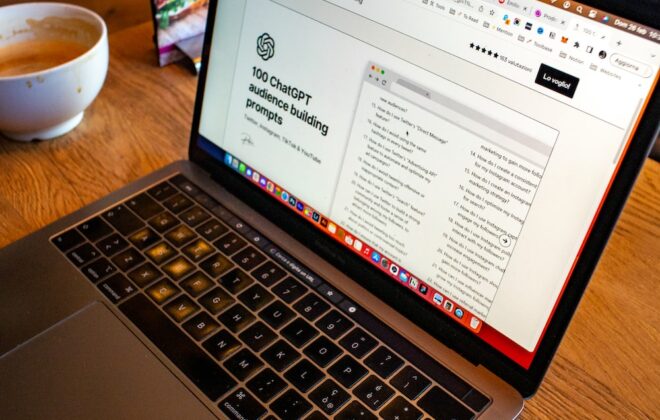
How To Prepare For A Phone Interview
The First Step – A Phone Interview
Page Contents
One of the first steps in the hiring process is a phone interview. After you have successfully customised your Resume and got through to the next step, you need to start thinking about tackling the phone interview.
If you’ve been invited for a phone interview, that’s a good sign that your Resume stood out and the hiring manager thinks that you’re a good fit for the job.
Did you know that, according to research by The Undercover Recruiter, recruiters only need about 90 seconds to decide whether they would hire the candidate during an interview. So, the interview is a crucial stage of the hiring process that mustn’t be overlooked as it could cost you the job.
There is no set recipe for a phone interview.
While this is true and you can never be sure of how and where the discussion will progress, there are a few points to note that can really help you out.
What is the purpose of a phone interview for a job?
A phone interview for employment or a job is, essentially, a screening process. They will want to learn more about you and see if you meet the minimum requirements for the role, such as your professional background and experience. In most cases, during a phone interview, the recruiter is trying to answer three basic questions:
- Who are you?
- What are your skills and experience?
- What are your salary expectations
- What are you currently doing/why do you want to leave your current role?
Answers to these questions is a great place to start when preparing for a phone interview.
Phone interview question 1: Tell me about yourself / Walk me through your Resume…
No matter how much or how well you have customised your resume for a particular job, the recruiter or the hiring manager will have a few gaps they will want to fill in before inviting you for an in-person interview.
There is a good chance that this is the first question the interviewer will ask. It’s a simple way for them to get to know you better as a person and see if you’d be a good fit for the job. Even though it’s arguably one of the most common interview questions, it still stumps many candidates. As it is such a broad and open-ended question, many don’t know where to start or what to begin with.
Don’t worry, the interviewer doesn’t need to know your life story. When answering this question, talk about how your experience is relevant to the role you have applied for. Talk about how your goals for the future tie in with those of the company you are hoping to work for.
For more information on how to impress when talking about yourself, have a look at this article.
Phone interview question 2: What do you know about our company? (applies when the role is advertised directly by the company)
The purpose of this question is obvious. They want to know whether you have done your research! They want to find out if you have taken the effort to research their projects, mission, vision, clients and services/capabilities, and have you explain how you are the right match for them.
Research the company as much as possible, and this doesn’t simply mean memorising. Do not make the mistake of simply recounting what you have read on the ‘About us’ page of the company when answering this question too.
Their website or LinkedIn profile are good sources for information about the company, their projects, values, clients and work culture. Go the extra mile and demonstrate your initiative by researching about a particular problem or issue the company is currently facing. If it is something relevant to your skills or experience, you can show the interviewer that you are suitable for the job and the right person to tackle this for them.
When you talk about what you know of the company, talk about specific points. If there is something in the company’s mission or a specific project that resonates with you, talk about that.
Phone interview question 3: Why do you want to work with us / Why are you interested in this role?
On the surface, this looks like a tricky question. You probably want to talk about the company’s great location or the high salary offered for the job. Or, maybe you want to answer with something generic like, “Your company seems like a good place to work.” However, this is not what the recruiter or the hiring manager wants to hear.
Think about it this way. What made you apply for this particular job as opposed to the three others exactly like this one? What opportunities do you see working here? What can you contribute? Essentially, they want know how your job search has led you to apply for this specific job at this specific company at this specific point in time.
Ideally, you want to talk about the job’s key responsibilities and link them to your previous experience. Tell them that you’re a great match as it’s similar to what you have done before – and how much value you can bring to the role and team. Make sure you show the interviewer how passionate and enthusiastic you are to work for their company.
Phone interview question 4: Why did you leave your last job / why are you looking for a new job?
Answering this question is not as tricky as it sounds. Remember, the interviewer is not trying to point a finger at you. The reason you left your last job or are looking for a new one gives the interviewer an insight into your work ethics and your attitude.
Whatever you do, do not talk negatively about your past employer. This may give the interviewer the impression that you are unprofessional and immature, and will drastically decrease your chances of passing the interview and being selected for the job.
Instead, explain that you’re looking for progression. Be honest about the reason you are looking for a new job. But don’t linger in the past. Be honest, to the point and move on. Most importantly, be forward-thinking.
Tell them why or how the role you have applied for is the logical next step in your career.
Phone interview question 5: What are your salary expectations?
This is possibly the one interview question where it may pay to be ambiguous. Basically, employers want to know the worth of your level of skills and experience, but also if you are at the level that they want. It also gives employers a clue as to whether they’re wasting their time if the salary expectation is outside the role’s salary range.
You may be tempted to either quote a number which is in the ballpark for the type of role you have applied for, or you may be tempted to sell yourself short in an attempt to present a bargain.
You can turn this question into an opportunity to sell yourself.
Make a strong case for yourself! Base your argument for the salary range you want in the value you can add to the business. Here, you can talk about your achievements using quantitative evidence, such as figures and numbers to justify the salary range and prove that you’re a strong candidate. Reinforce your skills, expertise and experience as much as you can!
Phone interview question 6: Are you applying for other jobs?
You may find that this question is possibly as easy to answer as it sounds! If you do have something in the pipeline that you are pursuing, share it with the interviewer. It’s better to answer as honestly as you can, without sharing too much information.
It shows them that you are exploring your options. However, do remember to make it clear that the role you are currently interviewing for excites you the most. Show them that you are serious and committed to this job. After all, you don’t want them to think you’d rather not be working for them!
If you need help finding that elusive job in Australia, we would love to help!




